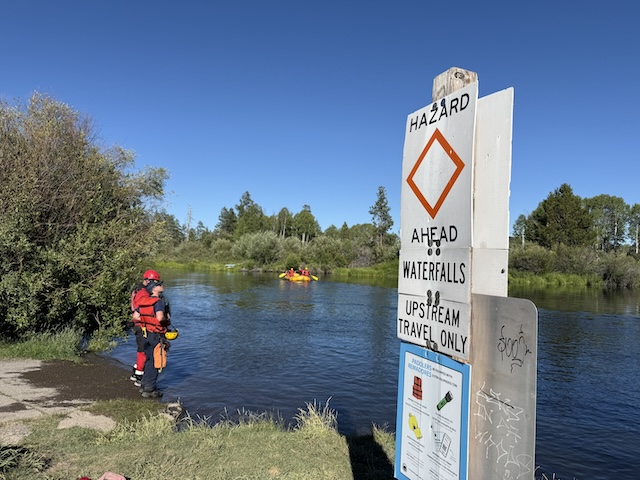Measure 7 may return to agenda in Salem
Published 4:00 am Wednesday, January 15, 2003
SALEM – State lawmakers may revisit the Measure 7 property compensation initiative that was struck down as unconstitutional last year.
Oregon voters in 2000 said the state needed to compensate landowners if government regulations limited how they could use or develop their property.
Trending
Measure 7 never went into effect, however, because courts ruled it violated the state’s single-subject rule for changing the state’s constitution.
But pointing to the public’s support of the ballot initiative, rural Republicans and the property rights group that pushed the initial measure say lawmakers ought to write similar language into the lawbooks this year.
”This is a statement from the Legislature to government about limiting restrictions on citizens,” said Rep. Greg Smith, R-Heppner. ”If governments choose not to limit themselves, then they need to figure out how to compensate citizens for the lack of use of property.”
David Hunnicutt, executive director of Oregonians in Action, which promoted the measure, said if lawmakers don’t take some kind of action on a Measure 7-type law, a new version will be steered back to voters.
”It’ll be on the ballot if the Legislature isn’t interested or wants to focus on other things,” he said.
But voter support of Measure 7 doesn’t necessarily equal a thumbs-up for the legislative proposal, filed as House Bill 2137.
Trending
The bill would require compensation to landowners if regulations decrease a parcel’s market value by 10 percent or more. It also would allow development to occur if zoning restrictions weren’t in place when the landowner of record bought the property.
Land use watchdogs say the plan would punch holes in the statewide planning system. That’s because cash-strapped local governments – which can’t afford to pony up millions to pay people to follow zoning laws – would opt instead to allow houses and developments to spring up on once-protected farm and forest land.
”They’re talking about just wiping out regulations that prevent people from turning resource lands into developments,” said Randy Tucker, lobbyist for 1000 Friends of Oregon.
He said a compensation law ought to also include a way to generate money for a fund, such as taxing the profits that developers make when government decisions increase the value of property.
Hunicutt said the money isn’t the biggest issue, however.
”The vast majority of people who bought a piece of property bought it with the intent to use it,” he said. ”They don’t want a check.”
House Bill 2137 seems likely to survive in the House, which is controlled by Republicans who, generally speaking, think Oregon’s land use laws are too restrictive.
But the fate would be less certain in the divided Senate and with Gov. Ted Kulongoski, who opposed the ballot measure and has said he will protect land-use laws.
Still, the new governor knows the discussion is coming about some kind of successor to Measure 7, said spokeswoman Mary Ellen Glyn.
”It is going to be an issue that needs to be dealt with,” she said.
Kulongoski has signaled he is willing to revisit some land use rules, particularly ones that might stand in the way of industrial development.
Hunnicutt said a revised ballot measure would be statutory and not constitutional, so wouldn’t risk running afoul of the single-subject rule.
Sen. Ted Ferrioli, R-John Day, said legislation may test whether lawmakers are willing to bend to the voters’ will.
”The public supported compensation of government takings of land rights and so should we,” he said.
Sen. Charlie Ringo, D-Beaverton, said there have been potent examples of people treated unfairly because of regulations who ought to be repaid somehow. But he believes the real intent of Measure 7 and any successor will be to make it harder for the state, cities and counties to pass new laws to cope with growth and its costs.
”My preference is to not try and push it,” he said.
Smith said it’s possible that some kind of alternative measure could steal steam from the effort to repass Measure 7, such as removing some obstacles for development in locales outside the fertile Willamette Valley.
”The governor has made it clear he wants to reach out to rural Oregon,” he said. ”Regionalization of land use laws would be a good compromise.”
No committee hearing has been scheduled for HB 2137.
James Sinks can be reached at 503-566-2839 or at jamess@cyberis.net.








